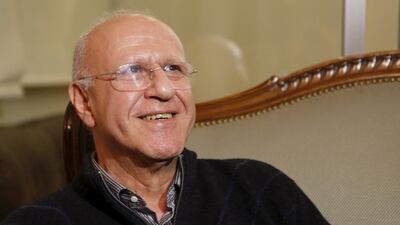‘Lebanon is a prisoner of its own geography” the journalist David Hirst once wrote. He was of course reflecting on its long history as the coveted object of foreign powers looking to improve their geo-strategic lot.
To the dismay of the Lebanese people, the only thing that exceeds their country’s experience with war is its experience with venal politicians having long surrendered their morals to the seductive power of the foreign pay cheque. Fierce sectarianism and an appetite for slush funds come standardised with the geriatric ward of Lebanese politics, and unfortunately this grim propensity persists.
In early 2012, the former information minister Michel Samaha was indicted on charges of smuggling explosives from Syria into Lebanon with the intention of killing political opposition and religious figures. Samaha’s instantaneous confession earned him four-and-a-half-years in the slammer. A Lebanese security source told me that “Samaha was plotting the bombings in order to stir a Sunni-Christian conflict”.
So iniquitous was Samaha’s plot, indeed because it intended to murder and maim, but more so because its objective was to exacerbate sectarianism in a country still divided by the scars of its 15-years civil war.
An attack on one sect in Lebanon is enough to open a Pandora’s box of reprisals that usually take the form of indiscriminate explosions in Beirut’s crowded suburbs. If Samaha got his way, any chance of reconciliation between Lebanon’s Sunni, Shiite, Christian and Druze communities would perhaps have been vanquished. However, it later became evident that this is exactly the kind of chaos that Samaha and his paymasters had wanted to foment.
A video leaked last year showed Samaha gorging on a plate of fresh fruit as he casually lists off the names of the unsuspecting victims he intended to have pulverised – most of them religious and political leaders. The minister had transported about 20 explosive devices from Damascus in his car, including magnet bombs that could be attached to cars.
It emerged that Samaha’s macabre conspiracy to cause explosions around Lebanon was at the behest of his masters in Damascus. Not content with the bloodbath in their own country, the Syrian regime fancied a similar fate for Lebanon. The bombs given to Samaha were allegedly supplied by the Syrian security chief, Ali Mamlouk. The implication of Mr Mamlouk – a key figure in the Assad regime’s intelligence network – places him, and by extension the Assad regime, at the heart of yet another attempt to sow sectarian chaos in Lebanon.
The Lebanese authorities have indicted Mr Mamlouk in the case, and the tribunal ordered a separate trial for him to be held. Naturally, the Lebanese know that their decision will fall on deaf ears as the chance of Damascus handing Mr Mamlouk over to stand trial for contriving acts of terrorism against the Lebanese people is non-existent.
For those who know both Samaha and the intertwined history of Lebanon and Syria, the aforementioned revelations aren’t so shocking. Mr Mamlouk has a long history of close connections with the Assad regime, and he once served as an adviser to Bashar Al Assad himself.
The latest revelations regarding Samaha are a reminder to Lebanese people that their country is still caught in the gravitational pull of Mr Al Assad’s Syria. Making sure his Lebanese cheerleaders stay in government, while keeping opposition that may facilitate genuine political reconciliation between sects at bay, is the name of the game.
Not a whit abashed, the Lebanese military court on bail released Samaha in January saying that he would served most of his time in prison. Naturally, a paroxysm of anger followed, with thousands of citizens taking to the streets in protest. The leader of the Lebanese Progressive Socialist Party, Walid Jumblatt – whose father was murdered by Hafez Al Assad – deplored the release as “legalising crime”. Others joined in the chorus of condemnation with the minister of justice, Ashram Rifi, lamenting that the “military court is dead”.
Perhaps the biggest travesty is that the Lebanese military court, ostensibly in place to protect the ordinary people from terrorism and other threats, squandered its power to bring Samaha to justice. The final military court of appeal is due to take place next month, when both the prosecution and defence will deliver their closing statements.
It is likely that Samaha will be allowed to return to politics. In fact he has already boasted that “I’m still part of the political scene”.
For ordinary Lebanese, escaping the orbit of Mr Al Assad’s Syria would be a prerequisite to a more independent and representative Lebanese political scene.
Thus, Lebanon’s trajectory is tied to the fate of Mr Al Assad. What comes after him remains to be seen, but one thing is certain: as it always has, the geo-strategic value of Lebanon will continue to invite the intrusive gaze of its neighbour.
Matthew Ayton is a freelance writer and researcher in the West Bank

